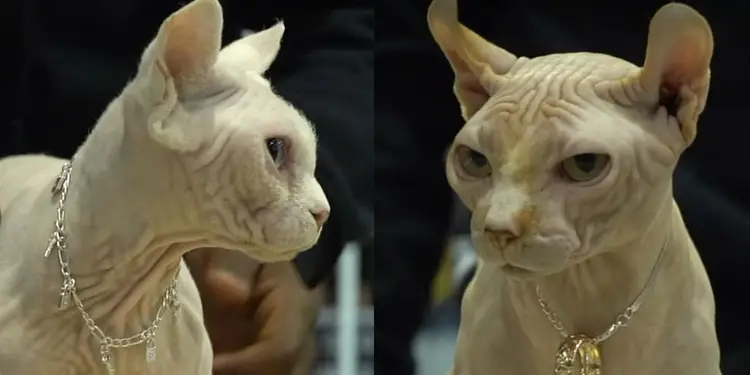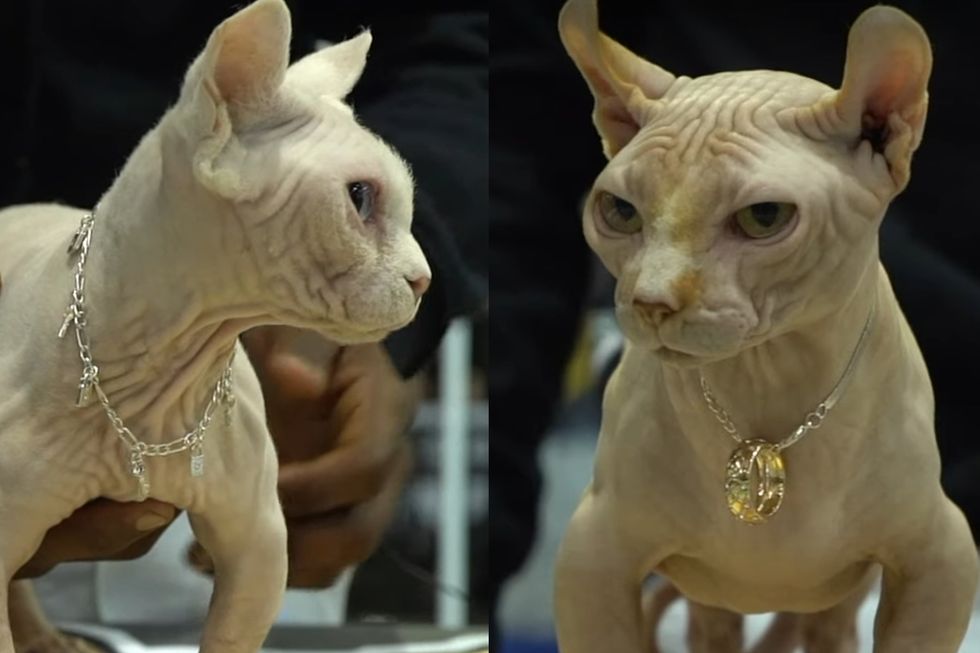What are XL bully cats? New warning issued over controversial pets

Pet owners have been advised to steer clear of the hybrid cat breed that looks like XL bully dogs, especially as its popularity has surged on social media.

The topic of owning XL bully dogs has sparked a lot of debate lately. Starting from December 31, a ban was implemented on this breed, which has been linked to a number of widely reported attacks on individuals.
The new law prohibits breeding, selling, advertising, rehoming, abandoning, or letting an XL Bully dog roam freely in England and Wales. Many owners managed to obtain an exemption, which mandates that XL Bullies must be muzzled, along with other requirements.
Cat owners have been advised to steer clear of "bullycats," a hybrid breed that was developed by combining the hairless gene of Sphynx cats with the short-legged gene of Munchkin cats. This recommendation comes in light of worries about possible health problems that these mixed-breed cats might experience.
Dr. Grace Carroll, an expert in animal behavior at Queen’s University Belfast, stated, “Shoppers have the power to influence the market. If we choose not to buy breeds that have extreme characteristics, we can encourage breeders to focus more on the health and well-being of the animals rather than just their looks.”
Dr. Carroll explained that kittens have a restricted ability to control their body temperature, and being hairless makes it even harder. This situation leaves them more vulnerable to breathing problems and skin conditions.
Animal welfare groups are especially worried about the increasing popularity of "bully cats." The NatureWatch Foundation has pointed out this troubling trend on social media sites such as Instagram and TikTok.
A representative stated, “It's alarming to witness these unfortunate cats beginning to show up in the UK. This type of breeding is nothing short of inhumane.”
Nonetheless, the mixed breed is becoming increasingly popular on social media, with breeders claiming that they have undergone health testing.
A representative from the RSPCA encouraged breeders to focus more on the health and well-being of animals rather than their appearance. Earlier this year, they stated, "We realize that the rising popularity of these cats on social media might increase the demand for them. However, we strongly encourage cat enthusiasts to think about adopting one of the many rescue cats we have available, rather than purchasing from breeders."
Subscribe to our complimentary Indy100 weekly newsletter.
How to subscribe to the Indy100’s free WhatsApp channel
Make your voice heard in our news community! Hit the upvote button at the top of the page to boost this article's visibility in the Indy100 rankings.













































